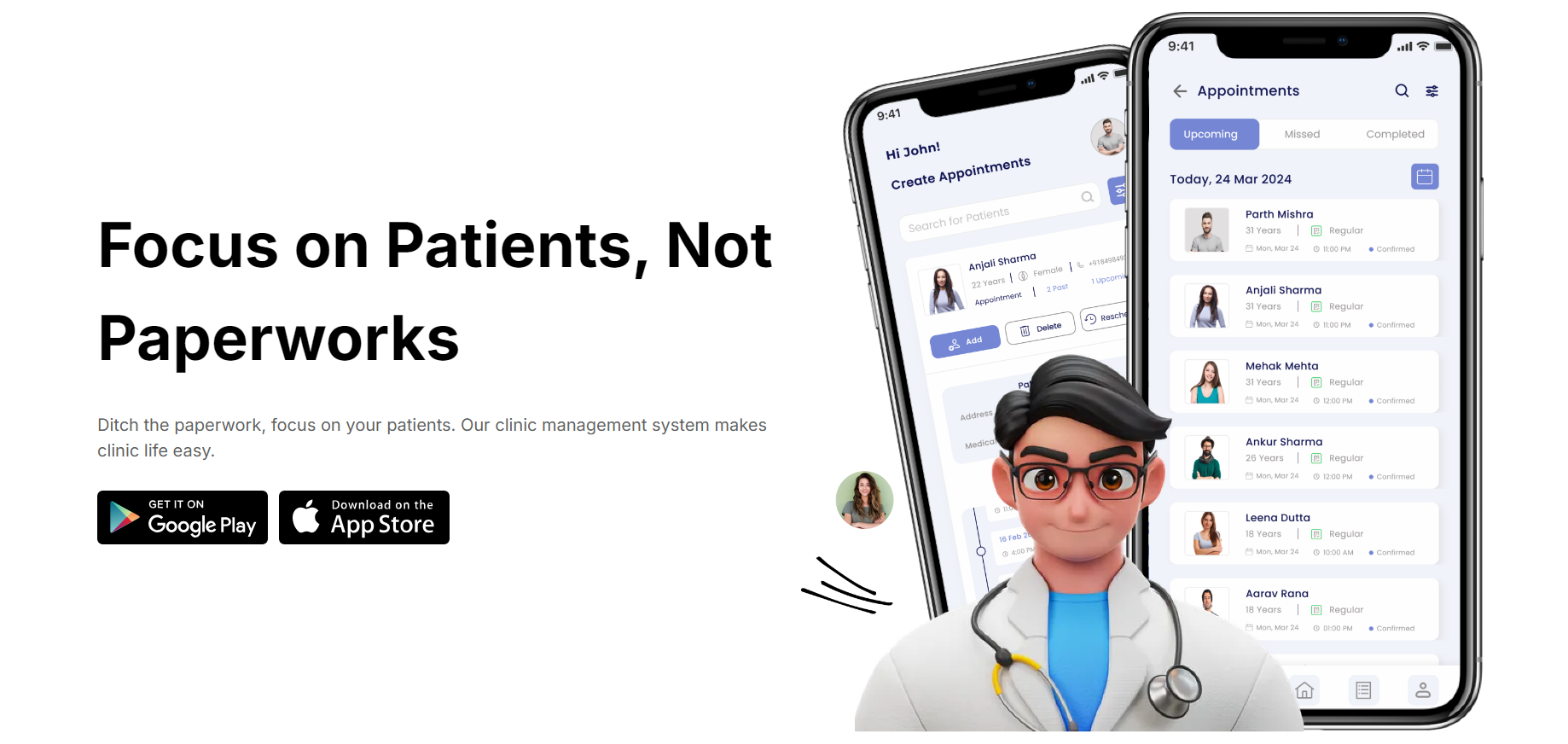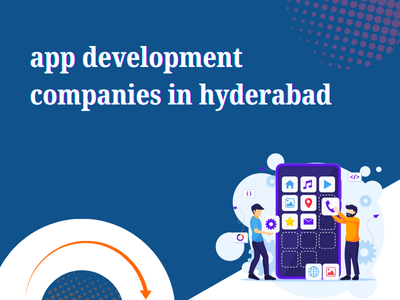Apps for phones are everywhere in 2024. Apps have become a big way for businesses to connect with buyers since 7.33 billion people use phones. Whether you want to make an app for your new business or bring your old one online, the first big choice you’ll have to make is whether to use a cross-platform option or a native app.
There are good and bad things about both ways. You can pick the best method for your business by knowing the differences and keeping things like cost, time, success, and audience in mind.
This blog will explain the main distinctions between native app development and cross-platform solutions and when each is best for your business.
Why Build a Native App?
React Native app creation means making apps that work only on one platform, like iOS (for Apple devices) or Android. Depending on the platform, developers use different types of computer languages:
Swift or Objective-C for iOS apps
Kotlin or Java for Android apps
React Native applications work very well and can use all of the device’s features, like the camera, GPS, and push alerts, because they were made for that platform.
Pros of Native App Development
The Best Work
React native apps are made to work quickly and easily on their platform because they were made just for it. A study from 2024 says that 70% of people will stop using an app if it lags or is too slow. Native apps make sure that the experience is smooth and fast, which is very important for apps that need to run quickly, like games or video editing tools.
A great experience for users
Because react native apps follow the platform’s design rules, users are used to the way they look and feel. For instance, someone with an iPhone will notice that the app looks like other iOS apps, which makes it easier to use. 48% of users say they like apps that look and feel like they were made for their device because of this.
Use of all the device’s features
The camera, sensors, and other parts of the phone can be used by native apps because they have direct access to all of them. A native app is the best way to go if you want your app to have advanced features like live streaming or augmented reality (AR).
Better safety
Native apps are safer because they can use the platform’s built-in safety features. In 2024, 77% of app users were worried about app security. This means that it’s important to make apps that keep users’ info safe.
Cons of Native App Development
Cost a lot to build It can get expensive to make two different apps, one for iOS and one for Android. It costs more because you need two groups of workers. A study from 2024 says that making native apps can cost 30–40% more than making cross-platform apps.
It takes longer This method takes longer because it needs to make two apps. This could make it take longer for your app to come out, which is bad if you need to get into the market quickly.
Needs more upkeep It can take a lot of time to keep two codebases up to date: one for iOS and one for Android. Fixed bugs or made changes must be done separately for each platform, which makes the work more difficult.
What is Cross-Platform App Development?
Cross-platform development means using the same codebase to make an app that works on more than one device, like iOS and Android. Frameworks like Flutter, React Native, and Xamarin are used by developers to do this. One set of code can be used for both platforms, so you don’t have to write two different apps.
Pros of Cross-Platform App Development
It helps you save money
It costs a lot less to make one app that works on both iOS and Android. Cross-platform frameworks can help businesses save up to 40% on development costs, according to data from 2024. One programming team is all you need to keep up with a single codebase.
More time to market
Building cross-platform apps is much faster when you only use one set of code. This is very helpful if you want to get started quickly and beat the competition.
Connect with More People
With a cross-platform app, you can reach people who use both iOS and Android (How to make an android app) at the same time. With 70% of the global mobile market going to Android and 29% going to iOS, a cross-platform app can help you reach as many people as possible.
Simple to take care of
It’s faster to update and fix things when there is only one version. You don’t have to make changes for both iOS and Android separately, which saves time and effort on upkeep.
Cons of Cross-Platform App Development
Not as good of performance
Because they have to work on more than one platform, cross-platform apps aren’t as fast as native apps. There may be some lag if your app has big features like games or complex animations.
Limited access to parts of the device
Cross-platform apps can use a lot of the features on a device, but they might not be able to use the newest or most powerful ones right away. For instance, it might take longer for cross-platform frameworks to handle new features that come out in updates for iOS or Android.
Doesn’t look as native
Some cross-platform apps don’t fully match the feel of iOS or Android, even though they try to look the same on both. There may be changes to how the app looks or acts for some users.
Native vs. Cross-Platform: Which Should You Choose?
Choose to make native apps. If:
Speed is important: Native development is best for apps that need to be quick and responsive and have a lot of features, like games, AR, or high-quality video. 57% of people will stop using an app if it drops or runs slowly.
You need to be able to use a lot of the device’s features. Native apps are best if your app needs to use Bluetooth, AR, or important device sensors.
Choose Cross-Platform Development If:
You want to save money: Cross-platform development is the best way to get your app on both iOS and Android if you don’t have a lot of money to spend.
You need to get your app out to customers quickly: Cross-platform development can cut the time it takes to make an app by up to 50% for businesses that need to do this.
Your app doesn’t need a lot of features: Cross-platform frameworks can give you everything you need if your app is simple and doesn’t need a lot of advanced features.
Assert IT Solutions has created many native and cross-platform mobile apps for various business purposes. Our development team has successfully finished several projects, producing valuable and easy-to-use apps that help businesses succeed. Whether it’s a high-performance native app or a low-cost cross-platform solution, we ensure quality and functionality.

One of our most notable projects is a clinic management app that helps healthcare workers run their businesses more efficiently. This app works on both iOS and Android and has features like making appointments, and managing patient records, all while keeping the user experience smooth. We made sure that the app could be used by a lot of people by using a structure that can be used in different ways.
We also made the Rotary app and the Prem Packaging app, which are both popular cross-platform apps.
Conclusion
You can choose between native and cross-platform development based on the needs of your app, your budget, and how fast you want to release it. It takes more time and money to make a native app, but it has the best speed and user experience. It’s cheaper and faster to use cross-platform options, but you might not be able to get as many advanced features or performance.
If you know the good and bad points of each method, you can pick the best one for your company and make an app that really helps people. Working with the best mobile app development company in Noida can help you get started. They can make sure that your app is built with the newest technologies and is designed to meet your business goals.
FAQ Native app Development
1. What’s the major difference between native and cross-platform apps?
Native app development uses platform-specific languages and tools like Swift for iOS and Kotlin for Android to create apps that only run on one platform. In contrast, cross-platform programming uses a single code base for multiple systems. With the same code, the program runs on iOS and Android.
2. Which is faster: native or cross-platform development?
Cross-platform programming is usually faster because developers write one code for all devices. This can halve growth time. Native app development takes longer because each platform need a script to be built and updated.
3. Are native or cross-platform programs faster?
Native apps rely on a platform’s native libraries and features to perform better. Over the years, cross-platform apps have improved, but they can be slow when running games or apps with loads of pictures.
4. Which is cheaper, native or cross-platform?
Cross-platform software saves money by requiring one code base for iOS and Android. Development expenses can be cut by 40% compared to native apps, which require two codebases and development teams.
5. How can I choose the finest mobile app company?
Choose the best mobile app development firm in Delhi or your preferred location for a development partner. Make sure they have native and cross-platform development experience, know what you need, and can assist you choose the optimal way based on your budget, app complexity, and timeframe.









